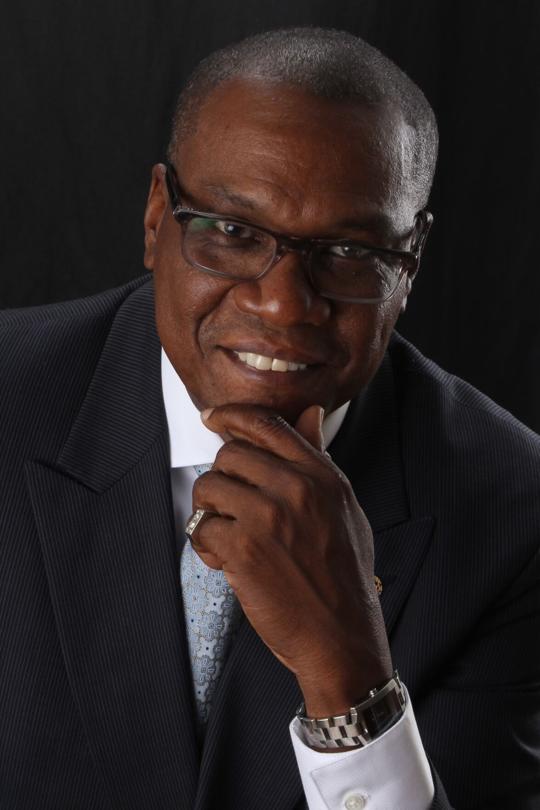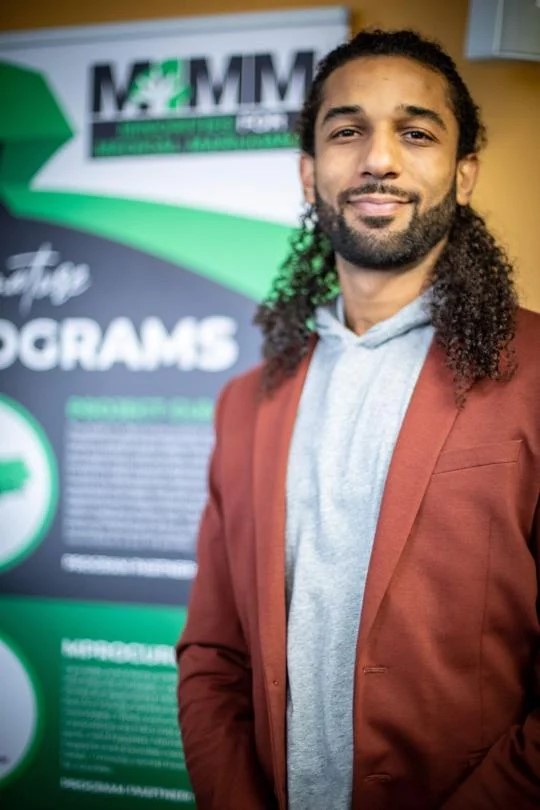by Ansley Franco, Missouri Business Alert
Samantha Blum campaigned for years to legalize marijuana in Missouri. Now, she is among the 48 winners of a cannabis microbusiness license awarded by the Missouri Department of Health and Senior Services last month to underrepresented communities.
Blum, a stay-at-home mom in Lee’s Summit, said she was going through the normal routine of homeschooling her daughters when she got a text from her business partner, Chris Jeske, saying he thought they won a license.
“I didn’t want to go out there and say things to my kids. I didn’t want to start crying,” Blum said. “I have been praying in my car, crying every time I pray about it because we wanted this so, so, so bad.”
Blum and Jeske applied for a microbusiness wholesale facility license. Blum says they were eligible to apply for having a net worth of less than $250,000 and an income below 250% of the federal poverty line for at least three of the last 10 years.
As Blum looks toward building her business, she must raise funding. Although she received quotes of at least $1 million, Blum aims to keep the costs closer to $500,000. While a few family members have offered to contribute to the business, it would not cover the full cost.
“We don't have any capital at this current time. We don't have any investors. We have talked to a few but they asked a lot of questions that we don't have answers for at this current time,” Blum said. “It just made more sense for us to take a step back from finding investors to really get all of the foundational stuff for our businesses.”
Missouri’s microbusiness license program is one of more than a dozen in the country aiming to offer licenses to people impacted by marijuana incarceration. However, experts and advocates say there has yet to be a program that successfully supports the inclusion and success of underrepresented populations in the cannabis industry.
State to issue licenses by Dec. 2
The DHSS's Division of Cannabis Regulation is currently evaluating the 48 microbusiness licenses to determine whether they fit the eligibility criteria. Those who applied had to meet at least one of the seven requirements, which include people who were previously incarcerated for nonviolent marijuana offenses and veterans with a disability card. After the review is completed, Abigail Vivas, the division’s chief equity officer, will do a final review of the applicants and issue the licenses by Dec. 2.
As license recipients look to raise capital for the new businesses, many face challenges.
Three months into the first round of the microbusiness license applications, concerns have surfaced over whether applicants will be the ones with capital and decision-making abilities in the businesses.
The Missouri Independent reported last month that a Michigan company offered to pay eligible people to apply for microbusiness licenses in Missouri and other states. The terms of the contract would require applicants to give up complete control and any resulting profits.
Also, an Arizona-based consulting firm is connected to more than 400 microbusiness dispensary applicants, including six winners.
The state required each applicant to report a list of owners — which is defined as someone with 10% or more financial or voting interest in the business. At least 51% of the business must always be owned by someone who meets at least one of the seven eligibility guidelines.

“The problem is that if they win, are they ultimately going to be the license holder and operate the business?” said Adolphus Pruitt, president of the St. Louis chapter of the NAACP.
The program rules allow applicants to apply only once per round, but individuals could form pooling agreements — official or verbal agreements between applicants and consulting firms — to enhance their license-winning odds. Vivas noted there is nothing in the law about these agreements.
Getting the program right is a steep feat. A 2022 Minority Cannabis Business Association report stated that of 15 state social equity programs, not one has resulted in an equitable cannabis industry.
For instance, Arizona’s social equity cannabis program began in April 2022 and awarded 26 recreational marijuana licenses. According to the Arizona Center for Investigative Reporting, 11 of the 26 social equity licenses are now owned by Arizona’s corporate dispensaries.
“I don't know if I have yet seen a social equity program in any state that I would call satisfying from a perspective of trying to correct the harms of the war on drugs,” said Carl Werner, a partner at cannabis law firm Vincente LLP in Denver, Colorado.
Though the businesses have to be majority owned and operated by individuals who meet the social equity requirements, Werner said many investors will be looking for a large portion of ownership.
Finding funding is a hurdle
Access to funding remains a hurdle for microbusiness license holders
As cannabis remains federally illegal, funding for any business in the industry can be difficult. Most banks are unwilling to take money from cannabis businesses, making loans difficult to obtain.
There are also the barriers that underrepresented business owners face raising funding in general. For instance, Black founders raised only 1.1% of venture capital in 2022, according to Crunchbase.
Missouri’s microbusiness program had fewer rules around funding to lower the barrier to entry, like a refundable $1,500 application fee if the applicant was not awarded a license. This is a change from Missouri’s medical license program, which included a nonrefundable $10,000 fee to apply for a cultivation facility and a $6,000 fee for a dispensary. Despite investing thousands of dollars in the application process, many were denied the license.
Given the limited avenues for raising capital, microbusiness licensees must rely on personal funds, family resources or private investors.
People in the industry expect license holders to need around $1 million to $5 million to start up their businesses. License holders must become operational within two years and undergo a state inspection.
“(Social equity applicants) have all of the same problems as any other cannabis industry owners. But they also lack the personal connections to rich people,” Werner said. “If you lack that network, it can be very hard to make those connections in a timely fashion.”
Chip Sheppard encourages partnerships
Chip Sheppard, who works in cannabis law at the Springfield firm Carnahan Evans, said license winners would hopefully be able to find partners who would be willing to fund the business. Those partners can own up to 49.9% of the business in exchange for the capital they would provide.
But Blum, the license winner from Lee’s Summit, is unwilling to make that trade.
“I can't give up any percentage of the company nor do I want to,” Blum said. “I hold a great deal of pride in the fact that it is a woman-run business and that's very, very important to me, especially being the mother of little girls.”
Christy Essex, who applied for but did not receive a license, was a part of a cannabis license support program from cannabis companies BeLeaf Medical and Harvest 360. The program included sessions on funding strategies and finding the right investor.
“No matter if you're a regular license holder, or if you're going to be a microbusiness license holder, the funding has always been an issue,” Essex said.

Brennan England, another license applicant who was also a part of the BeLeaf program, said if he won, he planned on using his pre-established connections within the cannabis industry and private investing to fund the business. But he said that funding is still the biggest challenge.
Potential solutions explored
One option that could eliminate the need for license holders to give up equity is a central pool of funds for microbusiness owners, said Werner, the partner at the Colorado cannabis law firm.
A program along these lines is launching in New Jersey, where the state’s Economic Development Authority is offering $12 million in grants for 48 cannabis businesses.
In Missouri, the DHSS is looking for ways to support the licensees within the bounds of the constitution. As it currently stands, there are no provisions in the amendment to provide grants or loans to microbusinesses.
Pruitt said he believes that once cannabis was legalized, this type of program should have been integrated from the start. Now, he said the state is playing catch-up.
“Minorities especially, we've been locked out of the cannabis business from the start,” Pruitt said. “How do we make sure that access to this opportunity is equitable for everybody across the board?”
Overall, the state has had to navigate the microbusiness program through the guidelines set in the amendment passed by voters last year.
“I mean, (the DHSS) didn't make this. What they had to do to start making all the revisions to the amendment that was given to them that we voted for,” England said. “They didn't choose this language. And so now what they have to do is to interpret that language and write it into law.”
Two more rounds of licensing ahead
This is the state’s first round of awarding microbusiness licenses. Regulators plan to disperse an additional 48 microbusiness licenses through two more rounds in 2024 and 2025.
“This first round went out and it exposed a number of things, and I'm confident that DHSS is working on fixing those things,” Pruitt said.
No matter how difficult and overwhelming the process is, Blum said she is motivated by these warnings and she is going to work harder to make it happen.
“It’s daunting, but I feel like the universe gave us this opportunity,” Blum said. “This is such a passion project for us. I can't speak for everybody, but for some people, their reasons are probably different than our reasons.”
Skyler Rossi contributed to this report.


